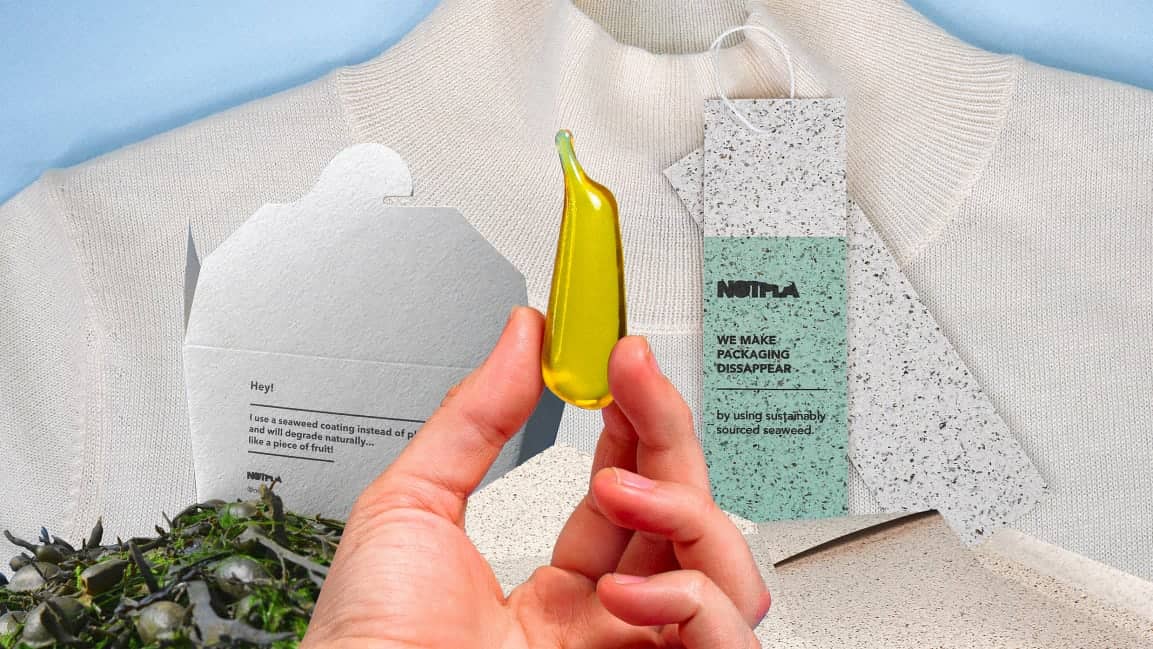It is made from seaweed (don't worry, it tastes like nothing) and can also be used for tea bags, pasta or laundry detergent.
With a regular package of instant coffee, the plastic wrapper ends up in the trash. With this new packaging, a sort of seaweed-based sachet, the wrapper dissolves into the drink and adds nutrients without altering the flavors.
A sachet to drink
The product is an evolution of what the London startup notpla (which stands for “NOT PLAstic”) developed in 2020 (I talked about it here). At the time there was something to be polished: today a more effective version of the sachet has raised 13 million dollars in funding and is preparing to take off.
The special coffee sachet is the result of the English company's efforts to increase packaging capable of replacing materials that are particularly difficult to recycle, such as thin plastic films. But the idea isn't just to simply replace plastic with something less harmful: the Notpla team believes it's possible to improve the performance of the now infamous material.
“We are using natural things like algae to create new materials. One of the coolest things is that algae can do things that regular plastic can't do,” he says Pierre Yves Paslier, co-CEO of Notpla. He is not wrong.

Rebuilding the concept of packaging from scratch
Asked about the problems they encountered over the course of their careers, Paslier explains that one of his first discoveries concerned the limitations of existing technology. Then the company started noticing a lot of interesting formats and applications where solubility could be a significant advantage: instead of just being an inert barrier, a sachet of seaweed could potentially act as a solvent.
Many people use tea bags. But the tea bag plastic can release chemicals when it is in hot water. A seaweed-based tea bag, Notpla argues, is safe to drink. It is made of seaweed that has no taste or smell.
Not just tea or coffee
The material can also be used for something else: imagine one sachet of ramen noodles or a sachet of rice that can be immersed in hot water during preparation. “Anyone who goes on a hike and wants to take a bag of food with them could consume it entirely, without producing waste or waste,” says Paslier.
even the laundry detergent or dishwasher capsules could use this algae material: the PVA plastic used today ends up adding plastic pollution to waterways, because it does not dissolve completely. The garments, which typically ship in a thin plastic bag, may ship in the algae-based material instead. The material could be made with incorporated detergent: once the package is received, it is put in the washing machine and it is ready for the first wash.
The next steps for Notpla
“We want to produce a slightly more interesting and enjoyable experience by taking advantage of what plastic can't do,” explains Paslier. Before this special sachet, the company started with the design of an edible or biodegradable blob-like water bottle. And it still produces it, for events like the London Marathon and music festivals.
Now Notpla is starting to ramp up production, using the same equipment other companies use to make plastic packaging. This will help you do more and maximize the investments you receive. Of course, the widespread diffusion of plastic (and the damage it has done) makes the adoption of a product like this a long time coming. After all, plastic had 100 years to 'establish itself'.


